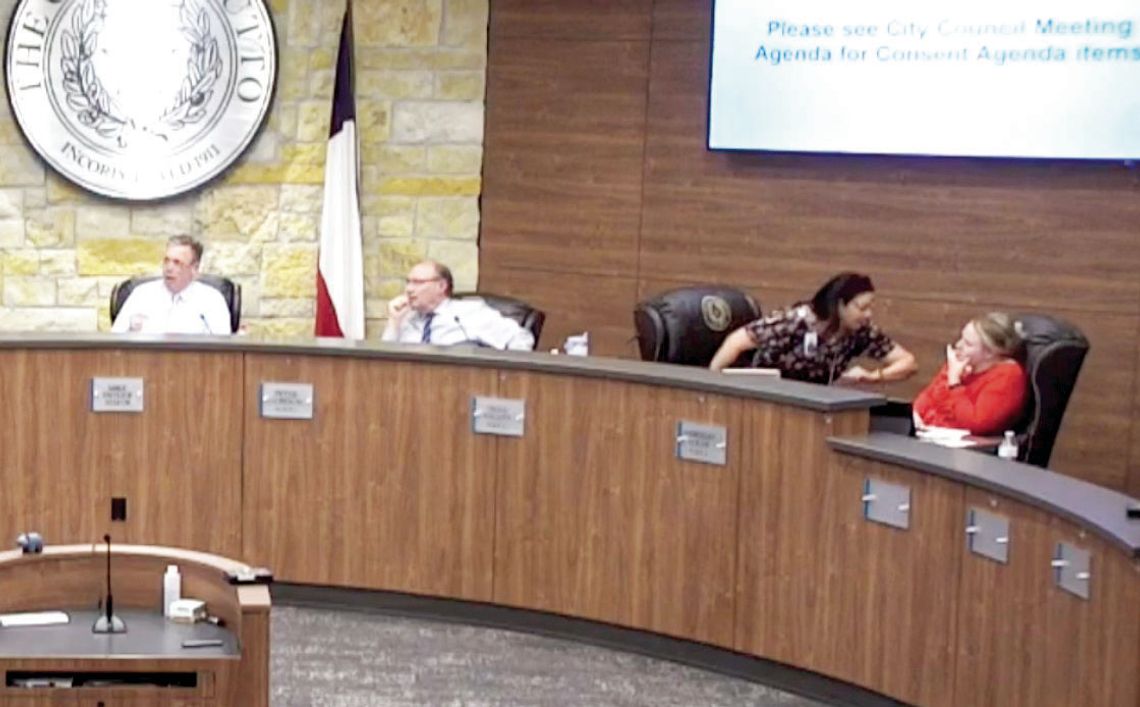HUTTO — To some observers, protocol flew out of the window during a Thursday City Council conversation about expense reimbursements, prompting a reminder about public discourse and decorum.
The predicament began when Councilwoman Dana Wilcott told Mayor Mike Snyder, “I appreciate you watching taxpayer dollars. I’m just going to say I feel like it’s micromanaging me, like I’m not an adult and I can’t manage a per diem and I cannot submit a receipt to the accounting…” She then interrupted herself and, looking into the gallery, called out “Jim,” apparently in response to a comment made by audience member Jim Morris, a Hutto resident and frequent council attendee.
Morris’ voice could not be heard on the recording of the meeting, but his comment eventually prompted Wilcott to leave the dais and go sit next to him.
“They were arguing about reimbursement procedures. I was just repeating ‘charter rules. It’s in the charter,’” Morris said later. “I wasn’t yelling.”
He added, “She came and sat one chair over from me and leaned into my space and started yelling at me. I just put my hands up and told her that was highly inappropriate several times.”
After Wilcott left her seat on the dais, Snyder stopped, confused, and asked his fellow council members what rule worked for the situation. He was advised to call point of order.
“Council member Wilcott, please don’t leave the dais and go interact with the public,” Snyder said.
Wilcott questioned the mayor’s control of the meeting.
“[Morris] keeps doing that. When are you going to allow us to operate without people yelling?” Wilcott said.
Snyder said audience members have freespeech rights under the First Amendment, so it would not be appropriate to have an attendee removed simply for talking.
Mayor Pro Tem Peter Gordon noted there is a point-of-personal-privilege rule. That allows a council member to stop the meeting when the elected leader feels someone in the gallery is causing a distraction and ask the chair to address the issue.
City Attorney Dorothy Palumbo told the council that typically audience members are allowed by law to be verbal.
“It has to rise to fighting words before the police can exercise any law-enforcement rights,” Palumbo said.
She added fighting words generally refer to threatening language.
“I felt threatened,” Wilcott said. “I’m not here to get beat up on.”
Councilman Brian Thompson asked who determines what constitutes threatening language.
“If we feel threatened, please don’t leave here behind the bulletproof dais and go sit in the audience,” Snyder told Wilcott.
This was not the first time Wilcott has interacted with audience members.
“If y’all don’t do (anything) about it, then I’ll have to,” Wilcott said. “I have no other choice.”
Morris left the chamber on his own.







